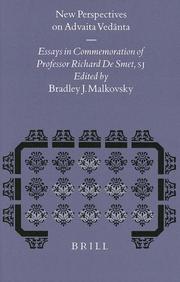| Listing 1 - 6 of 6 |
Sort by
|
Periodical
Year: 1977 Publisher: Münster Aschendorff
Abstract | Keywords | Export | Availability | Bookmark
 Loading...
Loading...Choose an application
- Reference Manager
- EndNote
- RefWorks (Direct export to RefWorks)
Periodical
Year: 1985 Publisher: Paris Presses universitaires de France
Abstract | Keywords | Export | Availability | Bookmark
 Loading...
Loading...Choose an application
- Reference Manager
- EndNote
- RefWorks (Direct export to RefWorks)
Periodical
Year: 1987 Publisher: Paris Presses universitaires de France
Abstract | Keywords | Export | Availability | Bookmark
 Loading...
Loading...Choose an application
- Reference Manager
- EndNote
- RefWorks (Direct export to RefWorks)
Periodical
Year: 1985 Publisher: Leiden Brill
Abstract | Keywords | Export | Availability | Bookmark
 Loading...
Loading...Choose an application
- Reference Manager
- EndNote
- RefWorks (Direct export to RefWorks)

ISSN: 01698834 ISBN: 9004095853 9004378790 9789004095854 9789004378797 Year: 1993 Volume: 56 Publisher: Leiden,Boston Brill
Abstract | Keywords | Export | Availability | Bookmark
 Loading...
Loading...Choose an application
- Reference Manager
- EndNote
- RefWorks (Direct export to RefWorks)
How might we transform a folk category — in this case, religion — into an analytical category suitable for cross-cultural research? In addressing that question, this book critically explores various approaches to the problem of conceptualizing religion for scholarly purposes, particularly with respect to certain disciplinary interests of anthropologists. The author argues that the most plausible analytical strategy can be based on the idea of family resemblances, especially as that idea has been used and developed in contemporary prototype theory. In the solution proposed, religion is conceptualized as an affair of 'more or less' rather than a matter of 'yes or no,' and no sharp line is drawn between religion and non-religion.
Religious studies --- Ethnology --- Religion --- Anthropologie sociale et culturelle --- Religious aspects --- Aspect religieux --- Religion. --- Religious aspects. --- 291 --- -Religion --- Religion, Primitive --- Atheism --- God --- Irreligion --- Religions --- Theology --- Cultural anthropology --- Ethnography --- Races of man --- Social anthropology --- Anthropology --- Human beings --- Godsdienstwetenschap: vergelijkend --- History --- Histoire --- 23 <05> --- Dogmatiek. Systematische theologie. Theologie:--in strikte zin--Tijdschriften --- Religions. Histoire. (Collection) --- Godsdiensten. Geschiedenis. (Reeks) --- Religions - History --- Religion - History --- Religions - Histoire - Collections --- Religion - Histoire - Collections --- Religion - History - Periodicals --- Ethnology - Religious aspects.

ISSN: 15709434 ISBN: 9004116664 9004379118 9789004116665 9789004379114 Year: 2000 Volume: 85 Publisher: Leiden,Boston Brill
Abstract | Keywords | Export | Availability | Bookmark
 Loading...
Loading...Choose an application
- Reference Manager
- EndNote
- RefWorks (Direct export to RefWorks)
This volume is a collection of essays by leading scholars who treat various aspects of the Hindu thinker Śaṃkara (ca. 700 CE) and his system of Advaita Vedānta. Topics include the contemporary relevance of Śaṃkara for inter-religious dialogue and human rights as well as revised assessments of Śaṃkara’s understanding of divine grace, the role of the gods, Buddhism, Śaṃkara’s relation to later Advaita, and the unity of the Self. The introductory essay of this commemoration volume assesses the place and value of Richard De Smet’s work in the context of twentieth century Śaṃkara scholarship. The contributors break new scholarly ground and offer fresh perspectives on Śaṃkara and Advaita Vedānta and help reassess traditional understandings of this great master of non-duality.
Indian religions --- Advaita. --- Advaita --- Sankaracarya. --- 23 <05> --- Dogmatiek. Systematische theologie. Theologie:--in strikte zin--Tijdschriften --- 294.522 --- #GGSB: Godsdiensten (dogmatiek) --- #GGSB: Hindoeisme --- #GGSB: Religie (alg. - niet chr.) --- C1 --- hindoeïsme --- 294.522 Leer van het Hindoeïsme: Upanishaden; Purva Mimansa; Samkhya; Yoga; Nya Avansesika; Vedanta; Advaita (Sankara); Visistadvaita (Ramanuja); Dwaita (Madhva) --- Leer van het Hindoeïsme: Upanishaden; Purva Mimansa; Samkhya; Yoga; Nya Avansesika; Vedanta; Advaita (Sankara); Visistadvaita (Ramanuja); Dwaita (Madhva) --- Kerken en religie --- Hindu philosophy --- Hinduism --- Pantheism --- Vedanta --- Śaṅkarācārya. --- Cankara --- Śankarāchārya --- Śankarācārya --- Śankara. --- Religions. Histoire. (Collection) --- Godsdiensten. Geschiedenis. (Reeks) --- Godsdiensten (dogmatiek) --- Hindoeisme --- Religie (alg. - niet chr.) --- Religion --- Sankaracarya
| Listing 1 - 6 of 6 |
Sort by
|

 Search
Search Feedback
Feedback About UniCat
About UniCat  Help
Help News
News